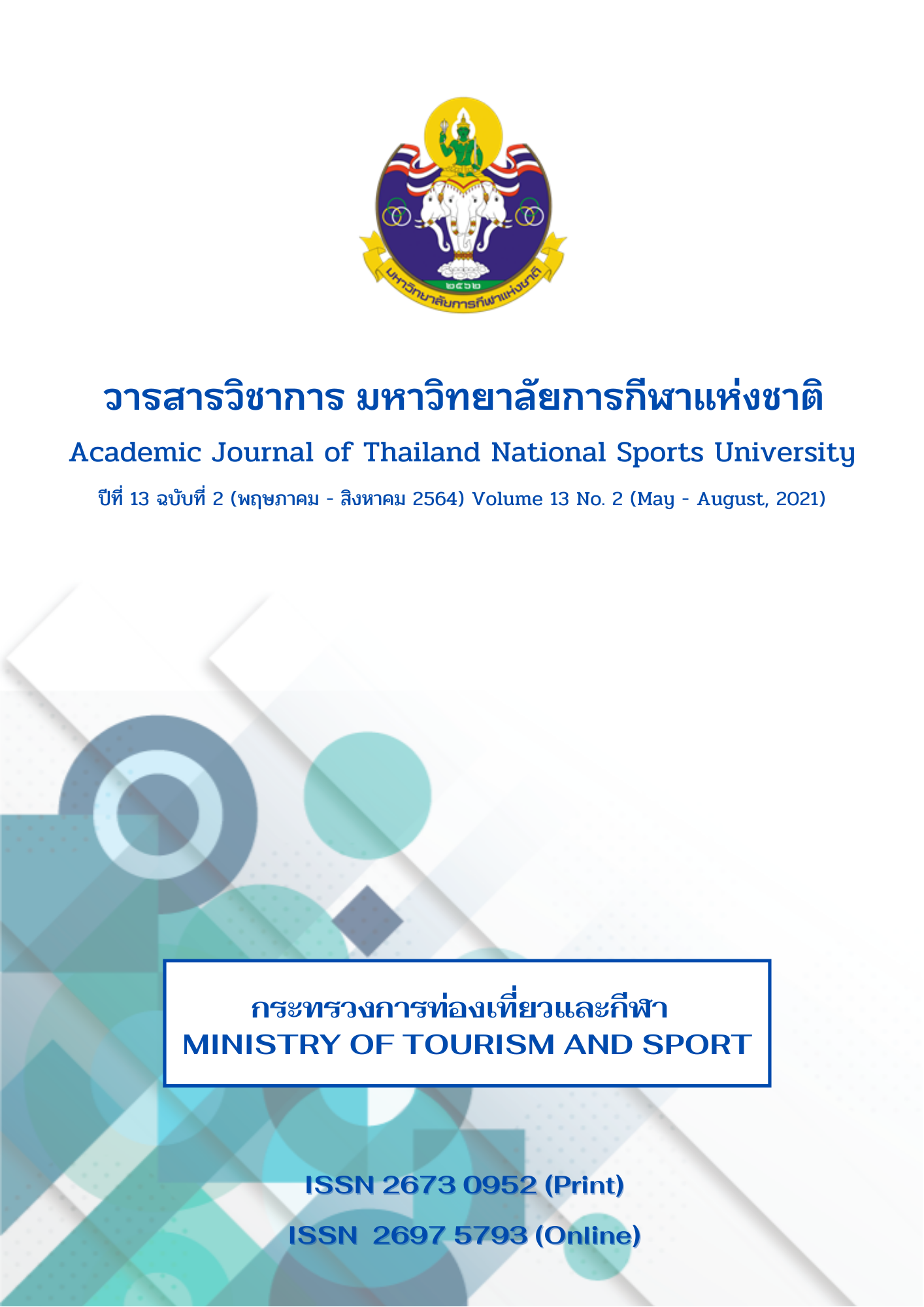THE DEVELOPMENT OF KEY PERFORMANCE INDICATORS FOR SUCCESSFUL MANAGEMENT OF THE ELDERLY CARE CENTER IN THE 21ST CENTURY
Main Article Content
Abstract
The objectives of this research were to the study satisfaction of the elderly service center management and study traction of the development of key performance indicators for successful management of the elderly care center in Bangkok & vicinity area. The research was a qualitative research. The sample were 60, of Group 1 executive care center for the elderly and care n = 10, Group 2 n = 50 elderly people from a total storage in 10 locations. Purposive selection was used in this study through the use of indepth interview. The data were analyzed to classify data as model and descriptive data. The model consisted of 5 dimensions determined; 1st dimension: Concrete form of service, 2nd dimension: Reliability, 3rd dimension: Responsibility, 4th dimension: Assurance compliance, and 5th dimension: Empathy with the process. This was in relation to 5-M theory with the management of success; 1. Money 2. Man 3. Management 4. Marketing 5. Moral by (SERVQUAL Satisfaction theory)
The results of the research were found that: Good relationship among the persons involved in the elderly center connected with SERVQUAL satisfaction theory of the 5 dimensions relationship theory, the confidence of the elderly to service such as; 1st dimension: Concrete form of service, 2nd dimension: Reliability, 3rd dimension: Responsibility, and 4th dimension: Assurance compliance, 5th dimension: Empathy with the process and 5-M management theory on human resources systematic management with elderly care professionals, The second was financial security and modern marketing communication technology in service activities that create satisfaction for the third time.
Article Details
The published article is a copyright of the Academic Journal of Thailand National Sports University. The passage appeared in each article in this academic journal is a perspective of each author which is not related to the journal. Each author is required to be responsible for all components of his/her own article. If there are any mistakes, each author must be responsible for those mistakes on his/her own.
References
Apichai Srimuang. (2013). KPI to evaluate the success of supervisors for executives. Nonthaburi. Think Beyond Books Company Limited. Director Division of Arts & Social Sciences University of Education, LowerMall Campus Lahore.
Davis, K., & W. N. John. (1989). Human Behavior at Work: Organizational Behavior. New York: McGraw-Hill Book Company.
Ekachai Boonyathitsanan. (2010). KPI, Heart of Management Key performance indicators. Bangkok. S. Asia Press Company, 1989 Co., Ltd.
Eric Weiner. (2008). The Geography of Bliss: One Grump's Search for the Happiest Places in the World Kindle Edition. New York: Correspondent. National Pubic Raclio.
Ernest, D. R. (1968). Management: Theory and Practice. McGraw-Hill Book Company, New York.
Faculty of Education Chulalongkorn University. (2009). Indicator development report and indicator tool according to national education standards, Standard 2, educational management guidelines and standard 3, creating a learning society / knowledge society. Bangkok: Office of the Education Council ministry of Education.
Griffin, R. W. (1999). Management (6th ed.). Boston Houghton Griffin.
Gulick, L., & L. Urwick. (1937). Paper on the Science of Administration. New York: Institute of Public Administration.
Health literacy. (2013). Health dispersion Health care Health intelligence Health Awareness. Dhurakij Pundit University, Dhurakij Pundit University.
James D. Mooney, & Alan C. Riley. (1931). The principles of organization Onward Industry. New York, London, Harper.
Kumnung. (2019 December, 9). Interview from Elderly who use the service: Elderly Care Center 5.
Lung Chan. (2019 December, 14). Interview from Elderly who use the service: Elderly Care Center 8.
Mangkorn Dhanasarnsilp. (2017). Management model for health centers for the elderly in Thailand (Doctoral dissertation), Kasetsart University.
Maslow, A. M. (1954). Motivation and Personality. New York: Harper and Row.
Nantanon. (2019 December, 7). Interview from Elderly who use the service: Elderly Care Center 4.
Narongchai. (2019 December, 7) Interview from experts: Elderly Care Center 7.
National Statistical Office. (2014). Survey of the Elderly Population in Thailand 2014. Bangkok: Tex and Journal Publication Co., Ltd.
Office of the National Economic and Social Development Board. (2012). Thai Society Report of the Year 2012. Bangkok.
Office of the National Economic and Social Development Board. (2016). The National Economic and Social Development Plan No. 12 (2017-2021). Bangkok.
Pender, N.J. (1996). Health Promotion in Nursing Practice (2nd ed.). Connecticut: Appleton & Lange.
Praneed. (2019 December, 7) Interview from experts: Elderly Care Center 3.
Prasert. (2019 December, 13). Interview from experts: Elderly Care Center 1.
Sombut. (2019 December, 15). Interview from experts: Elderly Care Center 9.
Woraphat Phucharoen, Jeerapong Pornkul, & Thanakrit Charasrungchavalit. (2008). KPI makes it easy, make it easy. Bangkok. Sam Lada Ltd., Part.
Woraphat Phucharoen. (2015). How to live in peace with the KPI. Bangkok. Amarin Printing and Publishing Company.
Vini. (2019 December, 7). Interview from Elderly who use the service: Elderly Care Center 10.


